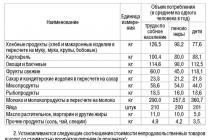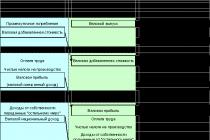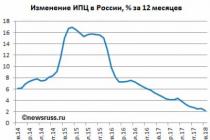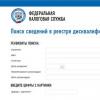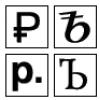Reviewers:
M. A. Davtyan, Ph.D. n, prof. laureate of the RF Government Prize in the field of education;
I. I. Stolyarov, Doctor of Economics, Professor of the Moscow state university them. M. V. Lomonosov
I. N. Albin, Ph.D., prof.; D. V. Gross, Doctor of Economics, Prof.; M. D. Gross, Doctor of Economics, Prof.; T. D. Gross, Doctor of Economics, Prof.; N. N. Gritsenko, Doctor of Economics, Prof.; V. T. Ivanov, Ph.D., prof.; N. N. Kuzmina, Ph.D.; L. E. Slutsky, Doctor of Economics, Prof.; M. M. Tazhin, Doctor of Sociology, Prof.; Yu. V. Yakutia, Doctor of Economics, prof.
History of Economic Thought
Aristotle and Xenophon - the founders of the theories of economics and chrematistics
1.1. What is theory and why is science needed?
There is a widespread opinion that theory is the lot of scientists and leaders. One involuntarily recalls the words of Mr. Jourdain from Molière's comedy "The Philistine in the Nobility": "Honestly, I had no idea that for more than forty years I have been speaking prose ...". Many citizens are constantly engaged in theory, but they do not know about it, just as people have been using the law of gravity for thousands of years without having any idea of its existence. For example, you decide to buy a house or exchange an apartment. Where will you start? From studying the issue and analyzing it in many ways - price, area, transport routes, ecology, and so on. High school graduates face a problem: where to go to study further? A thousand and one questions arise: is the university paid or free, is there a hostel, what are the remoteness, prestige and specialties of the university, employment prospects. And again a serious theoretical study of the problems begins, and only after that a practical decision is made.
Theory(from Greek. theory- observation, research) is a "mental cast" of generalized knowledge about some phenomenon, process or object. By observing the movement of the planets, people theoretically determined their characteristics and routes of movement. The theoretical discoveries of Copernicus, Kepler, Galileo, Tsiolkovsky and others substantiated the possibility of practical space exploration. The pinnacle of science in the 20th century. is the launch in 1957 of the first artificial satellite of the Earth, and in 1961, the flight of a man into space - Yuri Gagarin. The practical verification of many theoretical conclusions about space created the conditions for flights to other planets.
The brilliant theorist D. I. Mendeleev convincingly proved: “Theory is the soul, and practice (experience) is the body of science. Without a theory, it is easy to get lost in the ocean of thoughts and in the forest of facts.” This applies to all areas human activity, but in particular to the economy, where both horizontal and vertical relations are intertwined related to the production, distribution and consumption of material goods.
The science is a method, a way of studying, researching entities any object, process, phenomenon. Marx once noted: "If the form of manifestation and the essence of things directly coincided, then any science would be superfluous." Outwardly, it seems that the Sun revolves around the Earth. And how many centuries and human sacrifices it took to prove the opposite. For more than one and a half millennia, the dogma that all wealth was created by God dominated. Dissidents were sent to the stake. After overcoming medieval religious fanaticism for more than three centuries, there was a search for an answer to the question: if wealth is not created by God, then where does it come from?
In nature and society there are objective laws that express the essence of things and phenomena. The discovery, knowledge and determination of the mechanism for the conscious use of these laws in practice is the goal of science. Penetrating into the essence of the phenomena of nature and society, people reveal the operation of certain laws. Why, for example, does night give way to day, summer to autumn, winter to spring? For many centuries it was believed that such a change occurs at the will of the Lord God. But, when the legend of the divine structure of the universe was dispelled, the mystery of the change of night during the day, and summer in the fall disappeared. Now people not only know why it happens, but with mathematical precision, down to fractions of a second, they determine the time of such a change and consciously take this into account in their behavior. When this phenomenon of nature was not yet scientifically known, people adapted to it spontaneously. They worked during the day and rested at night; in the summer they prepared food for the winter, and in the winter they prepared for spring and summer work. Until the apple fell on Newton's brilliant head, people took into account the law of gravity subconsciously. They were always careful not to let any object fall on top of their heads. Was it really possible to go into space without measuring and knowing the essence of this law?
In a similar way, theory reveals the essence of phenomena and processes in economic life. Remember how many theories have been put forward in search of an answer to the question: if wealth is not given by God, then where does it come from? Many economic theories do not stand the test of practice and time. But there are such theories and laws that were once scientifically substantiated, but in changed conditions they no longer correspond to those existing between people. economic relations and their interests.
In this regard, A. Smith's theory of self-regulation of the economy ("lasser faire") is very characteristic. When there were tens and hundreds of thousands of small commodity producers and free competition, and there was no trace of monopolies, the spontaneous regulation of production was the only possible one. However, under the conditions of monopolization, the possibility and effectiveness of such regulation has decreased to a critical level. Here is how J. M. Keynes put it: “I rely on the state: I leave the point of view of lasser faire without enthusiasm and not because I feel disrespect for this good old doctrine, but because - whether we like it or not - the times of its success passed."
LABOR MARKET
AND INCOME OF THE POPULATION
TUTORIAL
Under general edition Doctor of Economics, Professor N.A. Volgin
Ministry of General and Vocational Education
Russian Federation as a teaching aid
For university students,
students in economic specialties

MOSCOW
BBK 65.24.ya73 (2Ros)
Reviewers:
BabichA.M., Doctor of Economics, Professor of the Russian Academy of State
services under the President of the Russian Federation;
^ Gritsenko N.N., Doctor of Economics, Professor, Rector of the Academy of Labor
and social relations;
Department of Labor Economics and Personnel Management of the Russian
Academy of Economics them. G.V. Plekhanov
(head of department ^ Odegov Yu.G., Doctor of Economics, Professor)
Author's team: Doctor of Economics, prof. Breev B.D.(chapters IV, VII, VIII); Doctor of Economics, prof. Bobkov V.N.(chapters IX, X); Doctor of Economics, prof. BulanovB.C.(chapters I, II); Doctor of Economics, prof. Volgin N.A., head of the team of authors (chapter XI, preface, basic terms and concepts, recommended literature); Doctor of Economics, prof. Zhukov A.L.(chapters XII, XIII, XIV); Doctor of Economics, prof. Map-seam S.A.(Chapter VI); Doctor of Economics, prof. Kokin Yu.P.(Chapter V); Candidate of Economics, Associate Professor Poludenny N.N.(Chapter XI, basic terms and concepts); Candidate of Economics, Associate Professor Rudenko G.G.(chapters II, VI); Candidate of Economics, Associate Professor Shcherbakov A.I.(chapter III)
^
R 952 Labor market and incomes of the population./
Ed. ON THE. Volgin. Tutorial. - M .: Information and publishing house "Filin", 1999. - 280 p.
ISBN 5-89568-146-8
Theoretical, methodological and practical problems of regulating the labor market and incomes of the population, issues of employment, unemployment, wages, the development of a system of social partnership and social protection population.
For students, listeners, graduate students, researchers, teachers, business managers, specialists and civil servants.
BBK 65.24.ya73 (2Ros)
ISBN 5-89568-146-8
© IID "Filin", 1999
© Design and reproduced original layout of the Filin Institute, 1999
FOREWORD
The formation and regulation of the labor market is one of the key and most pressing problems market economy. Questions of strategy and tactics of organizing these processes are discussed in the book. It includes two sections and fourteen chapters, which highlight the theoretical, methodological and practical matters regulation of the labor market and its main components - the cost and price of labor, its supply and demand, directly related to the formation and distribution of incomes of the population.
The structure of the textbook makes it possible to independently and deeply master the material, work out individual topics, and also check the quality of the knowledge gained. In the first section "The labor market and mechanisms of its regulation" the essence, structure and features of the functioning of the labor market are consistently considered in the content and methodological terms; employment and unemployment; development methods and effective use mechanisms for their regulation.
The second section "The policy of income and wages» includes analysis of income distribution problems contained in economic theories, dynamics and structure cash income and expenses of the population of Russia for last years; study of the theory and practice of remuneration, its organization and regulation; strengthening the influence and impact of social partnership and financial and credit levers on the policy of income and wages. The manual is provided with a list of recommended literature and the main terms and concepts used on the pages of the book, and at the end of each chapter there are control questions.
This could be the end of this short preface. Everything else without any complications will be done by the desire and diligence of the student, graduate student, applicant and listener who is studying in the professional retraining and advanced training, to independently learn the intricacies and specifics of the labor market, the peculiarities of regulating incomes and wages of the population, because this is facilitated by the structure of the book, the layout of the material, the style, structure and logic of presentation. However, I would like to emphasize one more point, which seems to be fundamentally important both in a theoretical and practical sense. The labor market and its components, as well as the social and labor sphere as a whole, should not be viewed as a passive "dependent" that requires only one thing - as much financial investment as possible. Of course, for the development of the labor market and its infrastructure, financial resources. But this is not a “vacuum cleaner”, this market is active, its return is incommensurable with the costs. With the correct organization of the labor market and its constituent elements, they not only instantly recoup the corresponding costs, but give a socio-economic result that is difficult to overestimate at the macro and micro levels. This is undeniable. There are as many examples as you like - effective employment, minimal (natural) unemployment, modern wage models that are of interest in the maximum productivity of labor, production, etc.
Professor N.A. Volgin
Virtual Workshop: The Search for Effective Institutions for Russia in the 21st Century has been in existence since 1999. This project united the efforts of scientists - economists and sociologists from the cities of Russia and neighboring countries Astana, Biysk, Donetsk, Kyiv, Dnepropetrovsk, Yekaterinburg, Kazan, Karaganda, Kemerovo, Krasnodar, Minsk, Moscow, Nizhny Novgorod, Novosibirsk, Rostov-on-Don, St. Petersburg, Ulaanbaatar, Ulan-Ude, Ulyanovsk, Kharkov, Cherkasy, etc.
The head of the center is an ordinary professor of the State University-Higher School of Economics R.M. Nureev, key researchers S.B. Avdasheva, A.V. Alekseev, S.Yu. Barsukova, V.V. Volchik, V.V. Dementiev, S.G. Kirdina, Yu.V. Latov, S.N. Levin, G.P. Litvintseva, M.Yu. Malkina, A.N. Oleinik, I.V. Rozmainsky, T.Yu. Sidorina, S.G. Shulgin.
The Virtual Workshop regularly holds Internet conferences on the federal portal "Economics, Sociology, Management" (http://www.ecsocman.edu.ru/forums.html), based on which a number of monographs have been published. In 2001, the monograph “Economic Subjects of Post-Soviet Russia (Institutional Analysis)” was published ( http://www.ecsocman.edu.ru/db/msg/47998.html), and in 2003 its updated edition was published in 3 volumes (http://www.ecsocman.edu.ru/db/msg/47998.html). Since 2006, the SU-HSE has been publishing the series “ Economic theory: tradition and modernity. As part of it, the monographs “The Great Transformation of Karl Polanyi: Past, Present, Future” and “Social Market Economy: Concepts, Practical Experience and Prospects for Application in modern Russia».
| Transformation economic institutions in post-Soviet Russia (microeconomic analysis). Edited by Doctor of Economics. prof. R.M. Nureeva | ||
|
|
Economic Subjects of Post-Soviet Russia (Institutional Analysis). Ed. 2nd, rev. and additional Part 1. Households of modern Russia. Ed. Nureeva R.M. | |
|
|
Economic Subjects of Post-Soviet Russia (Institutional Analysis). Ed. 2nd, rev. and additional Part 2. Firms of modern Russia. Ed. Nureeva R.M. |
|
|
|
Economic Subjects of Post-Soviet Russia (Institutional Analysis). Ed. 2nd, rev. and additional Part 3. State in modern Russia. Ed. Nureeva R.M. | |
|
|
The great transformation of Karl Polanyi: past, present, future.
M.: GU-HSE. 2006 |
|
|
|
Social market economy: concepts, practical experience and prospects for application in Russia / ed. ed. prof. R.M. Nureyev. State. un-t – Higher School of Economics. – M.: TEIS, 2007 |
|
|
|
Economic entities of post-Soviet Russia (institutional analysis): 10 years later. Part I. Russian households. /Under the editorship of Doctor of Economics. prof. R.M. Nureeva M.: MONF, 2010 The monograph was prepared based on the results of 10 years of work of the virtual workshop "Search for Effective Institutions for Russia in the 21st Century". The monograph is devoted to the institutional analysis of the three main economic entities post-Soviet Russia: households, firms and the state. The eras of Yeltsin and Putin are compared and their unity and differences are shown. The main attention is paid to the analysis of the new institutional space, the mechanisms of households getting used to the market; ways of becoming an effective employee-partner; factors preventing the accumulation human capital. The problems of the formation of the middle class and institutions of civil society in Russia are also studied. For students, graduate students and teachers economic universities and faculties, all interested in topical issues of socio-economic development of modern Russia. |
|
|
|
Economic entities of post-Soviet Russia (institutional analysis): 10 years later. Part II. Russian firms./ Edited by Doctor of Economics. prof. R.M. Nureeva. M.: MONF, 2010 |
|
|
|
Economic entities of post-Soviet Russia (institutional analysis): 10 years later. Part III. Russian State./ Edited by Doctor of Economics. prof. R.M. Nureeva M.: MONF, 2010 |
The development of the virtual workshop led to the creation of the International Association for Institutional Studies (IAIS), which since 2006 has been publishing the yearbook "Post-Soviet Institutionalism", and since 2009 the journal "Institutional Studies" (http://www.instud.org). A conference of members of the society is held annually, and regional conferences are held several times a year (Moscow, St. Petersburg, Donetsk, Kemerovo, Rostov-on-Don, Sochi, etc.).
Main area of research: institutional analysis of economic entities of post-Soviet Russia, theory and practice of public choice, shadow economy, problems of power and property, the history of institutionalism. Many of them lie at the intersection of economics, sociology, and political science.
In 2010, a three-volume monograph “Economic Subjects of Post-Soviet Russia (Institutional Analysis)” was published. 10 years later”, which sums up the institutional development of Russia over the past decade http://www.mpsf.org/.
The monograph is based on the results of the 10-year work of the virtual workshop "Search for Effective Institutions for Russia in the 21st Century". The monograph is devoted to the institutional analysis of the three main economic entities of post-Soviet Russia: households, firms and the state. The eras of Yeltsin and Putin are compared and their unity and differences are shown.
The main attention is paid to the analysis of the new institutional space, the mechanisms of households getting used to the market, the ways of becoming an effective partner employee, and the factors hindering the accumulation of human capital.
The problems of the formation of the middle class and institutions of civil society in Russia are also studied.















